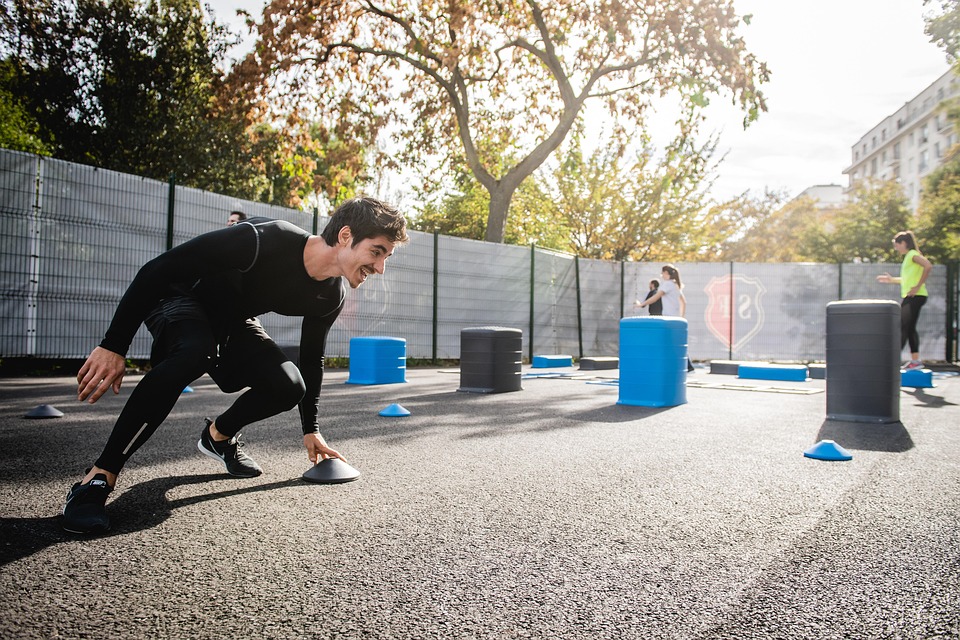Sports
How Coaches Shape Athlete Development Success

Alright, so let’s talk about something that doesn’t always get the spotlight it deserves: the incredible role coaches play in shaping the success of athletes. Whether you’re a weekend warrior, a high school standout, or dreaming of glory on the professional stage, a solid coach can make all the difference.
You might think of coaches as just game strategists, but they do so much more. They are mentors, psychologists, and sometimes even life coaches! So how exactly do they shape athlete development success? Let’s dive in!
The Coach-Athlete Relationship
First off, when we talk about athletes developing their skills, we really need to focus on the relationship they have with their coaches. This isn’t just about the X’s and O’s; it’s about trust, communication, and genuine connection.
Building Trust
-
Support and Feedback: A good coach will always provide constructive feedback. This helps athletes understand where they stand and what they need to work on.
-
Emotional Support: Life can throw curveballs—injuries, personal issues, or just a bad day. A coach who gets it can make a world of difference. Athletes thrive when they know someone believes in them.
Establishing Communication
-
Open Dialogue: Coaches who maintain an open line of communication encourage their athletes to express their fears, doubts, and aspirations. This creates an environment where athletes feel valued and heard.
-
Listening Skills: It’s not just about talking; effective coaches listen. They pay attention to their athletes’ needs, adjusting training plans as necessary.
This relationship is foundational to an athlete’s development and trust in their journey. By establishing that rapport, coaches lay the groundwork for building confidence and resilience.
Creating a Growth Mindset
If there’s one thing that coaches can influence, it’s the mindset of their athletes. A growth mindset means athletes recognize that abilities can be developed through dedication and hard work. This is crucial for long-term success!
Encouraging Perseverance
-
Emphasizing Effort Over Results: Coaches who celebrate effort teach athletes that improvement happens through hard work. Wins are great, but the journey is what truly shapes them.
-
Setting Goals: Coaches help athletes set realistic, achievable goals. This can inspire athletes to push their limits and celebrate every small victory along the way.
Instilling Confidence
-
Positive Reinforcement: Praise goes a long way! Coaches who recognize individual strengths contribute to building self-belief and motivation.
-
Constructive Criticism: By turning weaknesses into opportunities for improvement, coaches teach athletes how to overcome challenges rather than shy away from them.
The ability to foster a growth mindset ensures athletes aren’t just focused on immediate satisfaction; they’re trained to think long-term.
Technical Development and Skill Mastery
Of course, the technical side of coaching is massive in athlete development. Coaches have a repertoire of strategies that can help athletes master their sports.
Tailoring Training
-
Individualized Training Plans: Not everyone learns the same way. A good coach customizes training sessions to fit the unique needs of each athlete, ensuring optimal performance.
-
Emphasizing Fundamentals: Coaches stress the importance of mastering the basics. This solid foundation helps athletes when they face more complex challenges down the road.
Adapting to Change
-
Keeping Up with Trends: Sports constantly evolve, with new methodologies and techniques. Good coaches stay informed and incorporate beneficial changes into their training regimens.
-
Analytics and Technology: More coaches are embracing data! Utilizing performance metrics can guide training, ensuring that athletes understand where they can improve and how to leverage their strengths.
So, just think about it! The combinations of techniques, personalized training, and a strong foundation contribute to shaping well-rounded athletes.
Fostering Team Spirit and Collaboration
Even if sports feel like a solo endeavor at times, there’s always an element of teamwork. Coaches play a vital role in this area too!
Building Team Cohesion
-
Shared Responsibilities: In team sports, coaches instill the importance of collective effort, teaching that everyone has a role to play.
-
Conflict Resolution: Being able to manage conflicts within the team can strengthen the group’s bond. Coaches guide athletes in navigating disagreements effectively.
Promoting Communication Skills
-
Team Meetings: Regular discussions encourage athletes to communicate openly about on-field strategies and off-field stuff, which helps in building trust.
-
Encouraging Leadership: Top coaches often mentor future leaders within the team, empowering athletes to step up and guide their peers.
When athletes learn to collaborate and support each other, they can achieve so much more, both individually and as a collective unit.
Instilling Discipline and Accountability
Accountability in sports isn’t just about showing up for practice. It’s about nurturing discipline—a life skill that transcends the field. Coaches are key in this.
Developing Routine and Consistency
-
Structured Training Schedules: That’s where discipline comes in! Coaches set consistent training schedules that instill a sense of responsibility in athletes.
-
Time Management Skills: Learning to balance sport with academics or work is vital. Coaches often guide athletes on how to manage their time effectively.
Holding Athletes Accountable
-
Personal Responsibility: Coaches encourage athletes to take ownership of their actions, decisions, and performance. This empowers them to strive for progress.
-
Setting Expectations: By clearly outlining what’s expected, athletes become proactive in driving their own success.
When discipline meets passion, athletes aren’t just better at their sport; they’re also set up for success off the field.
Ultimately, coaching isn’t just about instructing athletes on how to throw a ball or perfect a dive. It’s about shaping who they are, on and off the field. With an understanding of the critical roles they play, we can better appreciate the profound impact coaches have in not just developing skilled athletes, but also well-rounded individuals ready to face life’s varied challenges.
If you’re keen on diving deeper into the nuances of coaching and how it influences success in sports, check out the resources offered by The Coaching Association. They have a treasure trove of insights that can enhance your understanding of this fascinating topic!
